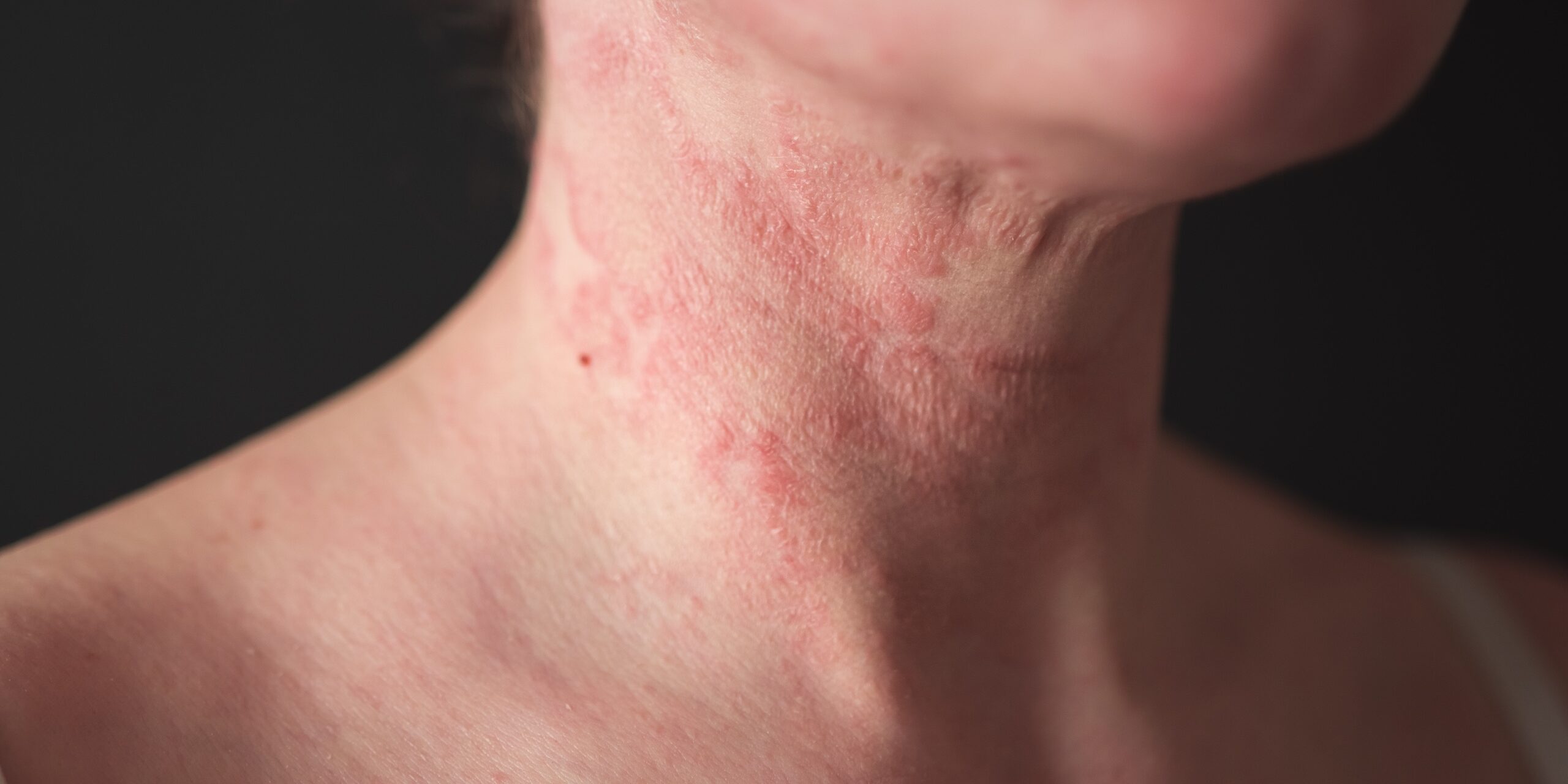More than 31 million Americans currently have some form of eczema, making it one of the most common skin conditions.
The dry, red, itchy rash associated with eczema often comes and goes without warning – and it can affect anyone at any age. Some people have acute eczema, which resolves completely after treatment. Others with chronic eczema may experience flare-ups throughout their lifetime. Eczema usually appears for the first time during childhood and can last well into adulthood.
The skin care experts at The Derm can create a customized treatment plan to help you fight eczema. Let’s begin by reviewing the most effective home remedies and medications used to treat eczema and when to see a dermatologist for professional care.
Explaining eczema
Eczema is classified as a type of dermatitis, which is a group of skin conditions that cause inflammation. Eczema weakens the outermost layer of your skin, the part responsible for protecting your body from outside elements (hello, Chicago wind!) and retaining moisture.
There are many types of eczema, such as atopic dermatitis, contact dermatitis, and seborrheic dermatitis. You can have more than one type of eczema at the same time, and each type has unique triggers that can impact your skin.
Eczema affects each person diagnosed with the condition differently, but the most common eczema symptoms include:
- Dry, red, or itchy skin
- Bumps on your skin
- Leathery patches of skin
- Scaly or crusty skin
- Swollen skin
Eczema triggers also vary from person to person – a trigger that causes your eczema to flare up might not bother another person with eczema at all. Some of the most frequent eczema triggers include:
- Dry air
- Soaps or detergents
- Makeup or skin care products
- Fabrics or clothing material
- Allergens
- Pollutants
- Stress
There is no cure for eczema, but there are many effective treatments are available. Visit The Derm as soon as possible so we can examine your skin and recommend the best eczema treatment(s) for you.
Home remedies for eczema
For people with mild eczema, treatment may begin with a consistent skin-friendly routine you can follow at home.
Shorten your showers and baths
Long, hot showers and baths can dry out your skin even more. Take short, cool showers or baths instead, preferably 10 minutes or less.
Moisturize frequently
Use gentle or sensitive skin moisturizers throughout the day, especially when you have dry skin. Don’t forget to apply moisturizer after showering or bathing when your skin is still damp – and drink plenty of water to help keep your skin hydrated as well.
Find “-free” products
Look for skin, body, and hair products that are soap-free, oil-free, and fragrance-free. Try to avoid scented laundry products, air fresheners, candles, and the like.
Manage stress
Stress can cause eczema flare-ups. If you are struggling with your mental health, seek professional help. Calming exercises like deep breathing and yoga can also relax you when you feel stressed.
Medications for eczema
Are at-home remedies not enough? The skin care experts at The Derm can recommend medications to help repair your skin and control your eczema symptoms. (Note: You may need to try various medications over months or years, depending on the severity of your eczema.)
Over-the-counter options
Pain relievers like acetaminophen (Tylenol), ibuprofen (Advil), or naproxen (Aleve) can help keep you comfortable, while oral antihistamines such as diphenhydramine (Benadryl), cetirizine (Zyrtec), or fexofenadine (Allegra) can reduce inflammation and swelling.
Antibiotics and other pills
There are many prescription-strength eczema medications available, including cyclosporine, methotrexate, and several others. If your skin becomes infected due to eczema-related scratching, your dermatologist can prescribe antibiotics.
Topical steroid creams
Other eczema medications are applied directly to your skin, such as creams, ointments, and gels. Topical steroid creams come in different strengths and help reduce redness and swelling during flare-ups.
Phototherapy
Phototherapy (or light therapy) uses wavelengths of ultraviolet (UV) light to target your immune system and fight inflammation. You may get similar benefits from exposing the affected area to controlled amounts of natural sunlight.
When to see a dermatologist
Does your eczema keep flaring up? Are you frustrated or embarrassed about how your skin looks? Any time is a good time to visit The Derm for eczema treatment.
Seek eczema treatment right away if:
- Your symptoms get worse after treatment
- Your symptoms don’t go away a few weeks after treatment
- You experience severe pain or have a fever
- Your skin becomes infected
Schedule an appointment at The Derm today
The Derm provides expert care and customized treatment plans for eczema and many other skin conditions. We also offer a full line of skin care products to keep your skin as healthy as possible.
To learn more, schedule an appointment today at one of our convenient locations in Glenview or Park Ridge.







